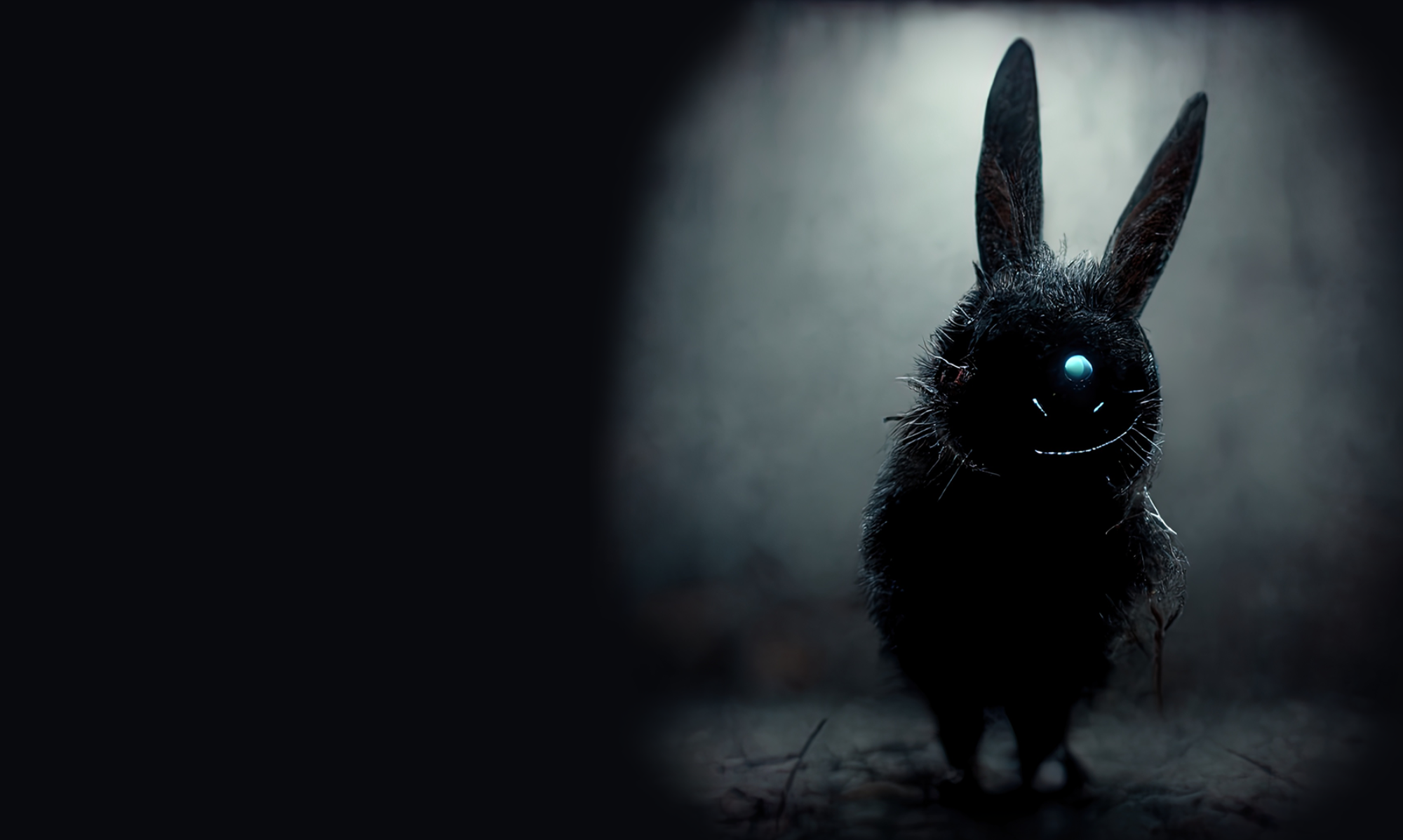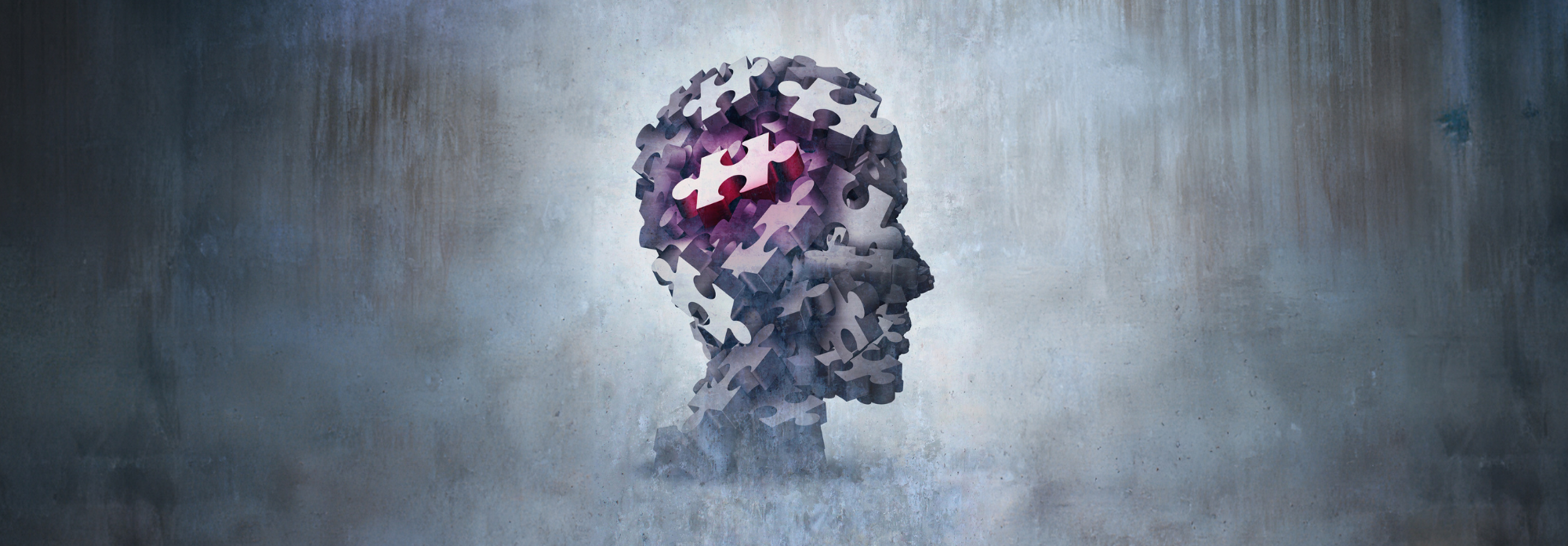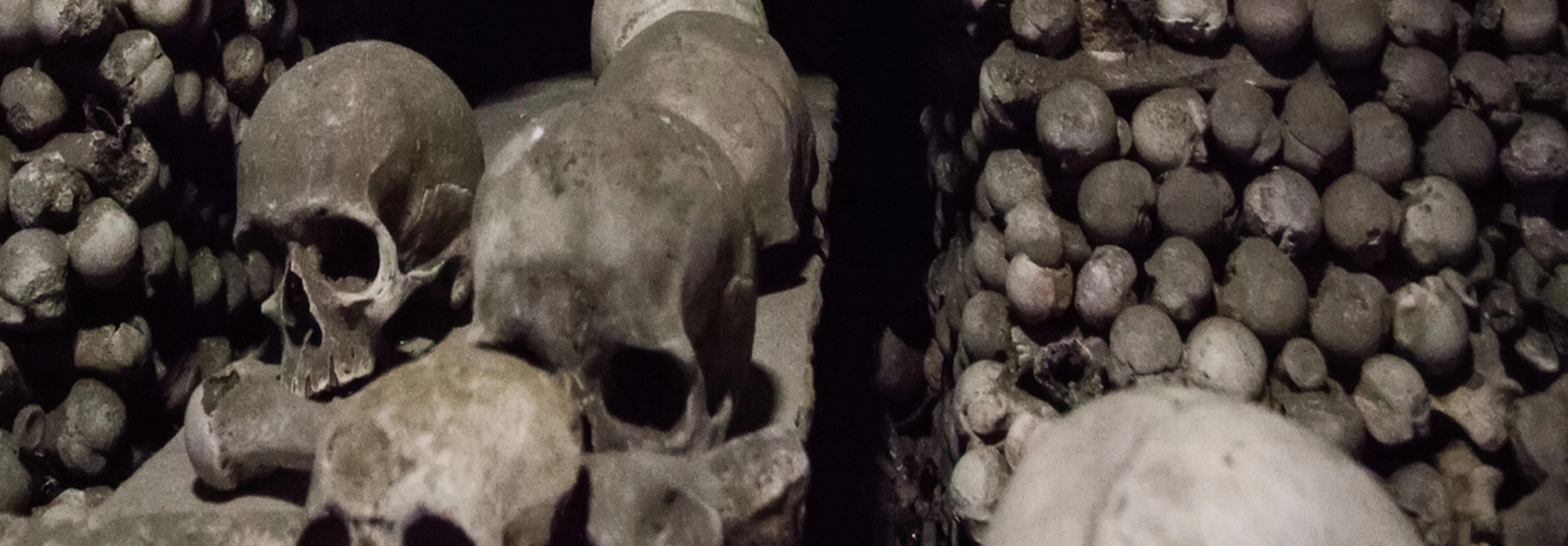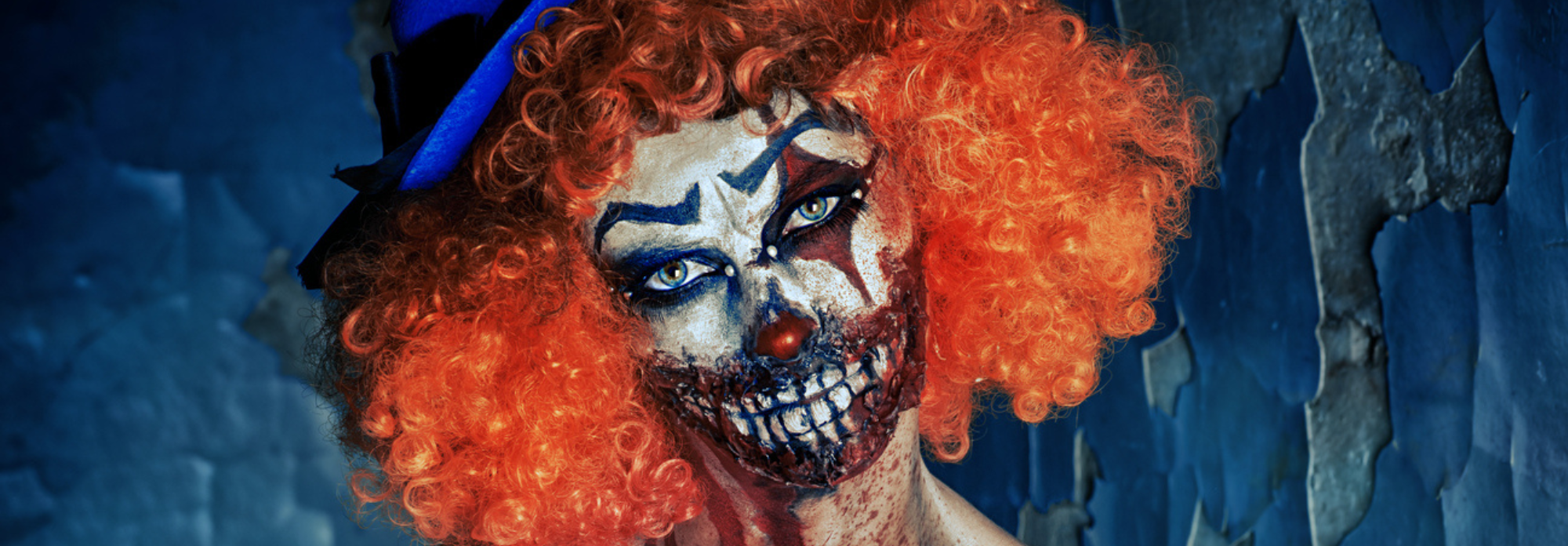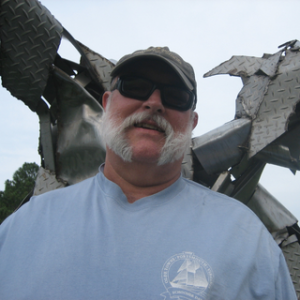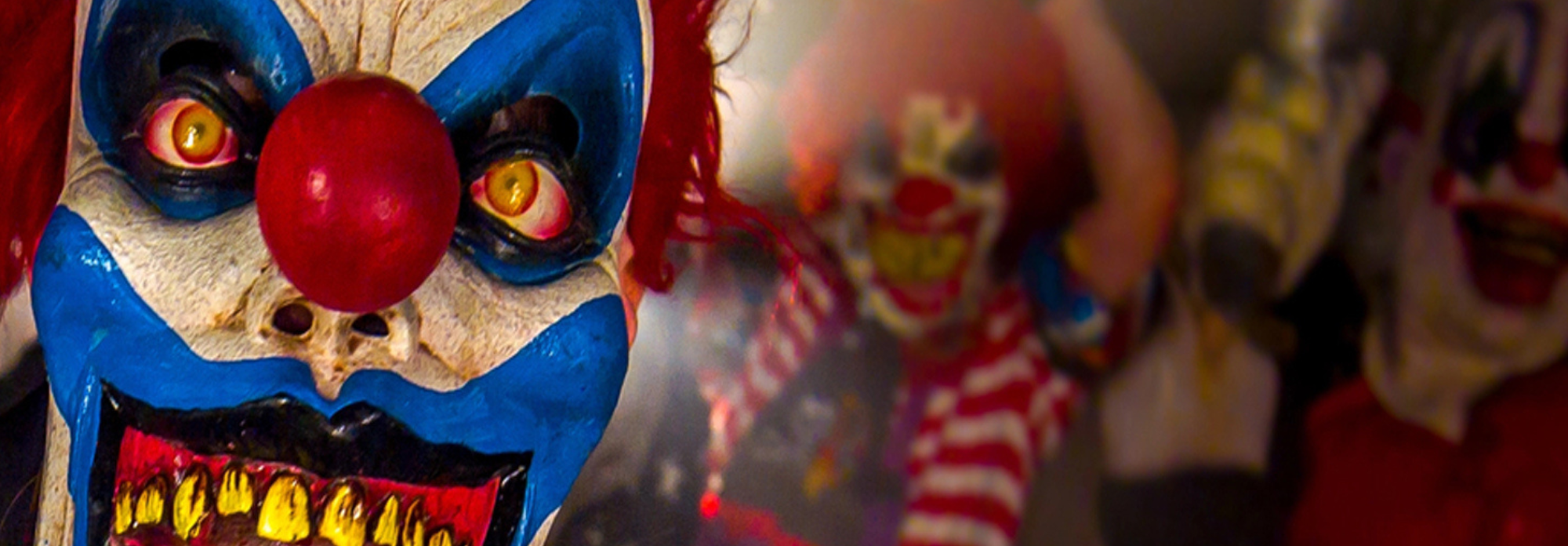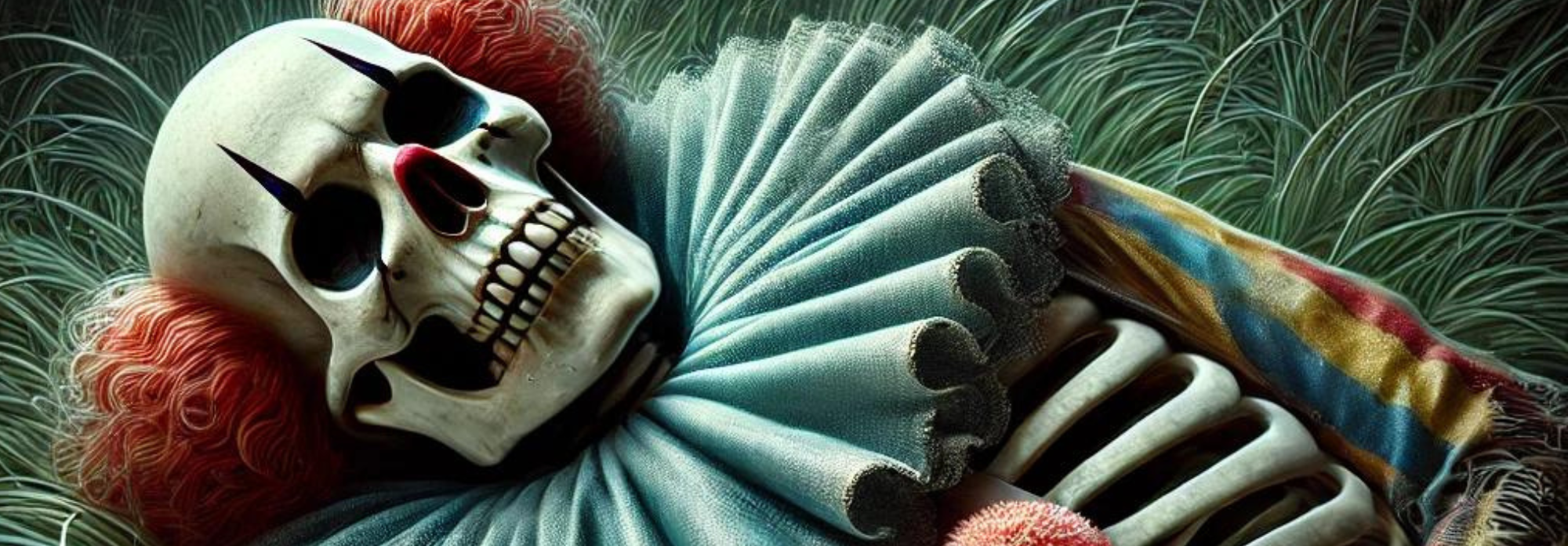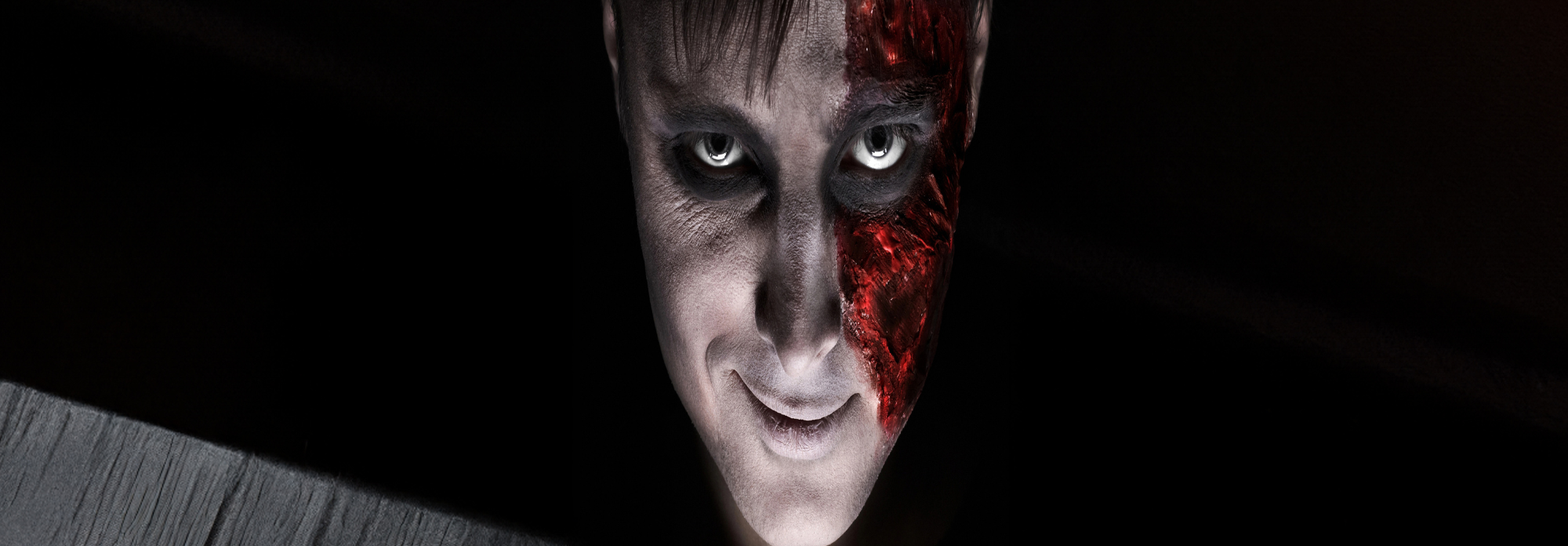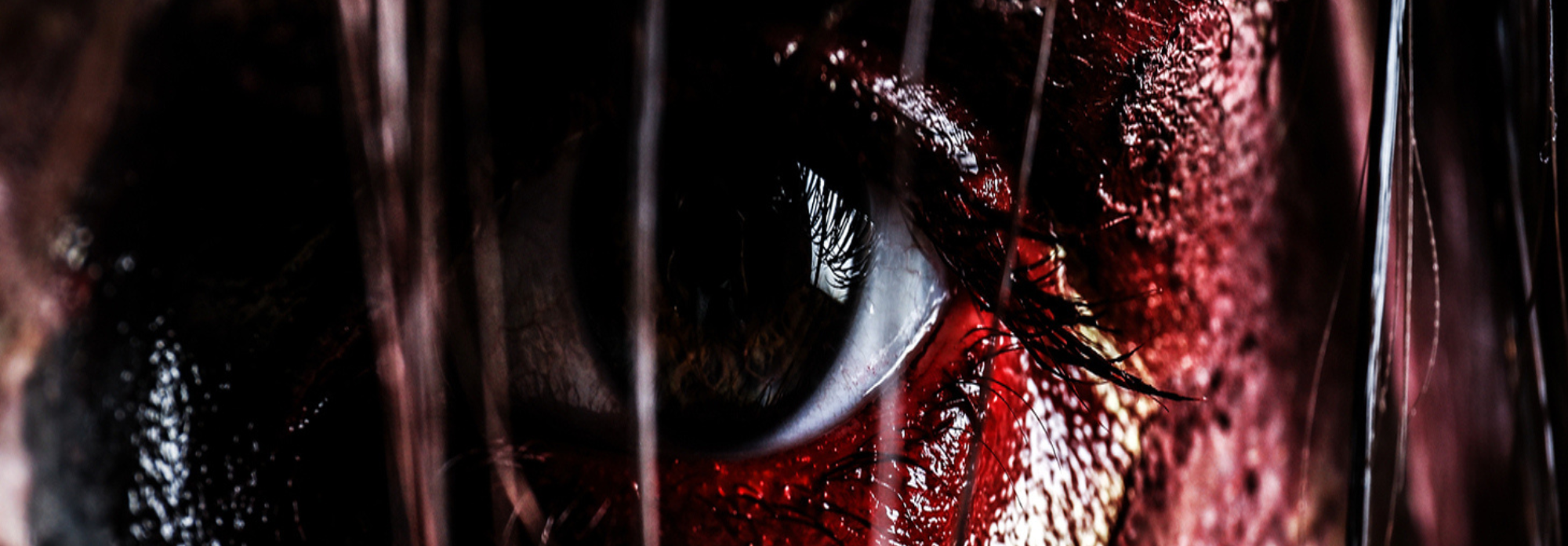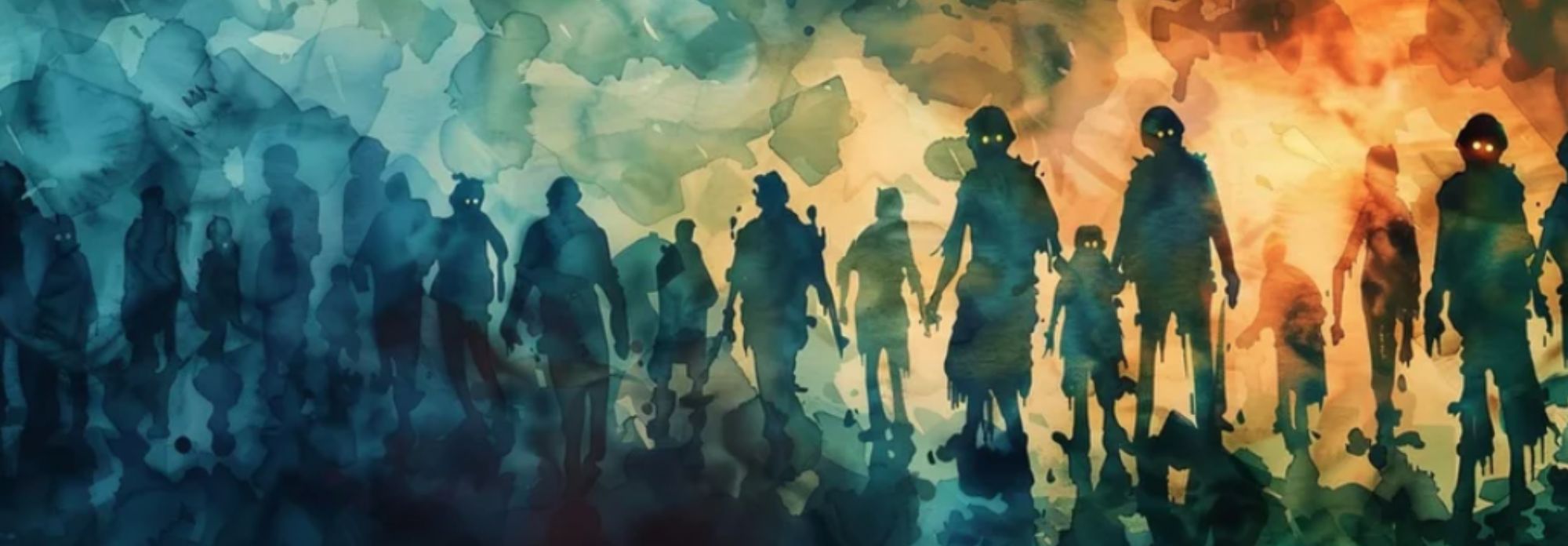Blackie had Nora pull over. He wanted to watch the snow falling in the park, snow being such a rare ol’ thing in Dublin. The park was only an open patch of grass where two lanes met at the end of a row of cottages, a couple of squatty rowan trees, a bench or two, a twisted fence of iron bars—more iron bars. He watched the white flecks try to drift and flutter, but mostly plummet straight down and vanish into the dirty brown grass. Not much grace, nor beauty. Nor any fecking tidings of great joy. It was two days before Christmas.
“What?” Nora said. “Are we going the right way?”
“Right as rain. It’s up at the end of the lane here.”
“Right as snow. Would you ever look at it.”
“Aye.”
“And it’s lifting your spirits, yeah?” Nora put her hand with a gentle squeeze on his arm, looking over at him, an arc of concern on her brow. Her husband was long since dead of the drink, her kids scattered from Liverpool to Sydney to Ottawa. A comfortably built woman she was, in a cozy cardigan and cotton dress, and not a shred of doubt or bother on her. She knew Blackie. She was good for him, his partner. And she knew what a royal pain in the hole this bloody dying thing was.
“Not a bit of it,” he said. A face gaunt and haunted, black gleaming hair yet to lose a curl, specked here and there with the white.
For another few moments they watched, in case the snow might decide to take a turn toward delightful. It did not. The sky was nothing but glum. He remembered a posse of laughing lads at Artane—the brutal industrial school of his youth, the tender mercies of the Christian Brothers—pointing, rushing the wide, gaping windows on a winter’s day to witness the miracle of real, falling, dancing snowflakes, transforming the lawn and the fields beyond to glorious white. Before the Brothers barged in to stomp on their joy.
“Right then,” she said, pulling back into the lane.
The old car coughed and wheezed, huffed and bucked, but the drive was mercifully short. She pulled to the curb. The building was a gabled, two-storied structure, taller than the neighboring cottages. Above the shop front, the faded sign, Frankie’s Band Box Antiques & Curiosities was scarcely legible. He sized the place up, a bit aghast; altogether run-down, dingy and dirty, as bloody deplorable as the car, as deteriorated as himself.
He’d not seen it in some thirty years, not since the day he’d been arrested. A shiny, solid, self-respecting concern then. Now it was a ghost.
“Right then,” she said again.
“I wonder, is it even open?”
“I think there’s lights on, sure.”
“Race you in.” He prided himself on maintaining his sense of humor.
She acknowledged the attempt with only the faintest of smiles, coming around the car to take his arm. As he straightened and steadied, she stared at the shop.
“Fools rush in,” she said.
He sighed, coughed—seldom one without the other. Fools do, of course, and so do dying old men with nothing left to lose. Though rush was overstated. They stumble in. Amble in. Stagger. Hobble. Make their pitiful, pathetic way in. A psychopath called the Smiler had at one time made the place his home, and of course the one named on the sign—Maisie Shivers, Prop—was the mother of that psychopath, Frankie her wee lad.
Might he still be about? The Smiler’d not been heard from in donkey’s years.
But still. The saggy old skin was not immune to the gooseflesh.
***
He’d told Nora about the man, by way of warning. “The biggest, widest smile in Dublin, he had. A brilliant, beautiful smile.”
“A friendly man then, yeah?” she’d said. “A nice man?”
“Ach, not at all. A cold and deadly smile. The biggest bloody smile in Dublin. Only it cut both ways—the bloodier it was, the bigger the Smiler smiled.”
Thirty years ago. The man was Hugh Lacey, a beefy man, though lacking firm edges, the build of a hard man beginning to go soft with the years, which were only a few more than Blackie’s. Light curly hair and dark eyes that tried to miss nothing. Much was missing, but this much the Black Man remembered: They were in the little office in the back of Frankie’s Band Box, him, Smiler Frankie, and another of the Smiler’s men—Blackie couldn’t now recall the name of the man, a culchie from Sligo—and Lacey. It was a negotiation, as Lacey put it, an attempt to avoid all-out war. Lacey was with the Ballybough Boys, a rival gang, and it was their contention that the Smiler’s heist of a priceless artifact, a golden broach from a recently uncovered Viking hoard, took place on the Ballybough Boys’ patch.
Frankie said, “Gents, we’ve a lot to talk over. I suggest we make ourselves comfortable,” and pulled a bottle of Jameson’s from a drawer, placing it with a fine thump on the desktop, where the lamplight glowed through it greenly. He motioned the others to sit—two wooden chairs against the wall beneath a faded print of Niagara Falls, and another chair, plush and padded, for guests of honor. This one he pulled up for Lacey. Then he retrieved from a crowded shelf in the bookcase, four etched crystal glasses of a fine set, and poured a generous measure into each. “Let the negotiations begin,” he said, giving Lacey the floor.
Lacey explained with geographical precision how the hoard had been uncovered in Ballybough, to explain in murderous detail the fearful consequences were an equitable accommodation not to be reached. Frankie said he’d something to show him, something that would bear on the negotiations at hand, and he rose from his chair and rummaged about in the clutter of the shelves behind Lacey’s chair. Lacey rambled on, persuasions both warm and friendly, warnings both dire and explicit. Shortly, the Smiler turned from the shelves, having found what he was looking for.
What he was looking for was a knife, shiny, long and sharp, which, after jerking Lacey’s head back by the sockets of his eyes, he thrust into his throat as easy as licking his chops. He took the tea towel he’d also found, pressing it to the place where the knife had gone in, to sop up blood. He pushed and probed as though carving a Christmas goose.
“Lovely,” he said. He looked up at the lads then, and if they’d thought the smile of him could not be more brilliant, they were mistaken. He withdrew the knife with a slippery, sucking sound, leaving the towel in place at its work. Lacey’s open-eyed head lolled back. With the collar of Lacey’s jersey, the Smiler wiped the blade clean.
“And that,” he said, “officially concludes the negotiations.”
Who knew if the man, the Smiler, could possibly still be in residence in Frankie’s Band Box, or even in Dublin, or anywhere at all in Ireland? Or in the whole of the bloody living world, for that matter? During Blackie’s first years in Portlaoise, news rampaged like a flashfire through the prison of a gangland massacre in Dublin, four Ballybough Boys slaughtered in a bloodbath in a warehouse in the north end, sliced and diced and nailed to the floor, the Smiler’s name branded on it with a sizzling iron.
After the blaze of that massacre, nothing more was heard from him. Nothing. It was as though he’d vanished into the long grass. Lying low, perhaps, on the run. If the man had met a justified and violent end, say the Ballybough Boys had exacted revenge, it should have been trumpeted through the underworld with all the force of the second coming. But there was nothing but nothing. Blackie meant to see if the old curiosities shop, if his old mother, might hold a clue.
He’d a stake, after all, more than a mere passing interest.
For later that same night, the night of the day Hugh Lacey was murdered, Blackie lay on the cheap springs of the battered bed in his shabby bedsit, trying to let the worry flow out, the peace flow in, but didn’t a flutter in his blood keep chittering up to his ears. He lit another cigarette, poured another whiskey. He put out his fag when his eyelids grew heavy—wouldn’t do to set himself ablaze, and his share of the dosh from the sale of the broach stuffed in the envelope up under the mattress—and closed his eyes. This close to sleep he was when the heavy pounding came at the door. Dazed and muddled, he was on the verge of recognizing the sound as something to which a response was expected, but both his recognition and his response were rendered moot when Gardaí came smashing through in a shower of splinters. A heavy, pink-faced Gardaí addressed him by name: “You are under arrest for the murder of Hugh Lacey. You are not obliged to say anything unless you wish to do so, but whatever you say will be taken down in writing and may be given in evidence.”
Cold iron twisted his wrists behind him in the chill quiet air of the street where the cop cars sat waiting. He remembered his balls itching savagely, and no way in hell to scratch them. Flashing lights ricocheted off the bricks and the lampposts, off the faces watching in windows and doors. Off the brilliant smile of the man peeping out from the shadows.
His betrayal at the hands of the Smiler, the Smiler’s theft of his hefty share of the spoils, had become Blackie’s guiding star.
***
“In for a penny, in for a pound,” he said, willing them toward the door, unsure what might wait within. The Smiler’d not been heard from in donkey’s years. But still.
“What can you possibly hope to find?” Nora said. “After all these years.”
“Ach, you never know,” said Blackie. “But begod, I’m feeling lucky.” He prided himself on maintaining his sense of humor.
The creaking of the door opening was nearly as loud as the jangle of the bells attached, both of them a shock of noise to the quiet within. Nora eased in alongside him as if entering King Tut’s tomb. The shadows seemed deeper and darker than when last he was here, the musty smell more profound, more scented with mold, and he tried to remember when—what time of the year—it had been when last he’d been inside, that day thirty years before; mid-afternoon, a bright summer’s day, he thought. Now, the glum afternoon spared little light through the dirty shop windows, and a shaded lamp or two on a table here and there shed little more. In the dimness, cobwebs and dust were evident on every cluttered surface—Maisie had lost her touch with her feather duster.
Aisles rambled this way and that among the tables and racks and stands bearing old clothes and hats, baubles and bric-à-brac, bits and bobs, every inch of wall space covered with maps and pictures, portraits in frames, square, oblong, oval, shelves with crockware, porcelain and pewter, books with covers crinkled and torn. All grimy, dark and yellowed.
He made his way to a table covered with a cloth that seemed to be the color of dust—seemed to be woven from dust. There was a dented old globe of the earth the color of parchment, the countries indistinguishable, old sets of checkers in faded boxes, and a troop of tin soldiers falling out of a disintegrating cardboard box. He picked one up, a Tommy by God, to feel the heft of it in his hand. It was tarnished and lead-colored, reluctantly gleaming. Its rifle poked at his thumb.
Nora stared at the brave, unknown soldier in his hand, at his mates scattered on the musty tablecloth, dead, in various reposes of rigor mortis.
From the rear of the shop came a call. “Is someone there? Who’s there?”
“Maisie,” he called, loud as he dared. “Maisie, Maisie, give me your answer true—” The effort of the sing-song set him again to coughing—a coffin fit, as he’d come to think of it.
The old lady appeared, picking her way haltingly, her hands moving from one surface to another, a tabletop, a shelf, a cabinet, swimming her way down the aisle. She was ancient and decrepit, the flesh of her cheeks hanging loose from her cheekbones, a pile of gray hair in a frowzy heap on the top of her head, specs all askew on her nose. Seeing the pair of them, she stopped, as though taken aback, as though she’d never before encountered a customer. “How did you know my name?” said Maisie, indignant.
“It’s on the bloody sign in front,” Blackie said. He wondered was she always so customer unfriendly nowadays, or was it his sing-song attempt at a joke that had put her off. She wouldn’t remember him, sure she wouldn’t. Of that, he was certain. Nearly certain. “I been here before,” he said, “years ago. It hasn’t changed much, sure it hasn’t.”
“I don’t remember the face of you,” Maisie said. “I never forget a face.”
“Mine was different at the time. It was a good thirty years younger.”
Maisie was unconvinced. “I never saw you before in my life. Nor this woman.”
“I knew your son—the Smiler? Once upon a time, I worked with him.”
This caused her fingers to stop their work; it was then he noticed the beads there, remembered them well, the beads in constant motion there, worn shiny, and he recalled her daily pilgrimages to Saint Xavier, her every afternoon spent in prayer. Taking a step closer, he cocked and aimed his face ’til her eyes were clamped onto his.
Divinely inspired, he said, “Maisie Shivers—would you ever pray for me?”
And didn’t a flicker of life spark in the dark old eyes. “Pray for you?”
“Pray for me. Yes. Please. For I’m a dying man—as you can plainly see.”
“The cancer, is it?”
“Aye. Filling up my ol’ lungs and creeping out.”
She reached to touch his hand with her rough, cold fingers. “Of course I can pray for you. I can pray with you.”
They made their way to the tall, Victorian chairs by the wide front windows, crimson stripes and greasy sheen, on chipped and clenched claws of wood. Nora trailed behind, sitting on the overstuffed old ottoman off to the side; the old lady paid her no heed. Beside them a hobby horse with frayed leather reins, and a dented tin spittoon. Blackie caught his breath. Outside the window, the snow was turning to rain, falling onto the dark pavement of the lane, and only a flash here and there of white.
“Take my hand,” said Maisie, a command.
He did, reaching across, grasping the rough, cold, foreign objects that were fingers.
Closing her eyes, bowing her head, the old woman said, “‘The Lord Jesus says, I go to prepare a place for you, and I will come again to take you to myself.’” Then she said an Our Father, then a Hail Mary, Blackie doing his bit at the end, “‘Holy Mary, Mother of God, pray for us sinners, now and at the hour of our death. Amen.’”
Then, opening her eyes, she looked at him. “Have you made your confession?”
“I have not,” he said.
“Sure, you’ll not gain entry into Heaven without it. It must be to a priest, of course—have you a priest? Have you a church?”
“It would take the poor man a month of Sundays to hear my confession, Maisie,” he said. “I’ve committed many sins.”
“Aye, haven’t we all, yeah?”
“I was a criminal. Most of my life. I was involved in a crime that killed a man.”
“You must confess to a priest, of course, not to me.”
In the quiet, a scratching, gnawing from somewhere inside, a mouse, a rat, consuming rotted wood—like the gnawing at his heart, consuming rotted flesh. Outside, a wee gray bird flew toward the window, then veered away.
“And yourself then, Maisie?” he said. “An old lady like you. You know you’re living on borrowed time, yeah? Have you made your own confession?”
She stiffened, righteously. “Every day! I confess to Father daily!”
“Father Daily? Where’s he at? St. Xavier?” Off to the side, Nora rolled her eyes, a tight smile pressed upon her lips. Maisie retreated back into her own, narrowing eyes, above her haughty chin, where the flesh too hung loose and free. “And—pardon me for asking,” he said, “but does your confession ever include mention of your son, Frankie, the Smiler? Your son and me had some business many years ago—among the other wrongs he done me, Maisie, he stole a great deal of money from me. And I’d dearly love to know what became of it.”
The old woman said nothing. The trembling in her chin—was it rage or was it fear?
“Where is he? Where is your son now? Does he ever come up in your confessions, your son? All the money he stole, all the lives he spoilt, all the lives he took? You wouldn’t have been hand in glove with the cullion, now would you?”
“Frankie Shivers was a sinner, an evil, evil man,” she said. “It doesn’t surprise me at all he stole from you, he stole from many a man, he done worse to ’em than that. I’d nothing to do with his sins. His sinning was all of his own doing, and his bent for it came from his father, not from me. When I learned of it, I urged him to repent. I insisted he repent. Finally, years and years ago, he went off to atone for his sins. It was at my urgings, it was.”
“Where to? Where’d he go off to?”
“Africa,” she said. “He went off to Africa. Many long years ago.”
“Africa? In the long grass in Africa?”
“Aye. To atone for his sins.”
“At your urgings, it was?”
“Aye. He became a mission worker—feeding the poor, building ’em schools and such, caring for the sick, preaching the faith.”
Blackie knew a recitation when he heard one. He appraised the face of her: a face that knew the mouth of it was lying and wasn’t much concerned with the fact. “Where did he really go to atone for his sins then, Maisie? Sure it wasn’t to Africa, sure was it?”
“He atoned for his sins, my boy did. He made it up to his God.”
“Atoned? Made? Why the past tense now, Maisie? Is he gone? Is he dead?”
The withered face of her looked down on him with something like a plea. She dabbed at her lips with a tissue materialized from out of her sleeve. “So many years gone by,” she said. “So long. So long since he was my wain. The beautiful smile of the boy.”
“Aye. So long. Many long years.”
The old woman closed her eyes again, eyelids fluttering down. “‘Hail Mary, full of grace,’” she said, a low, terrible murmur. “‘The Lord is with you. Blessed are you among women, and blessed is the fruit of your womb, Jesus.’ Pray with me,” she said, eyes clenched shut, hand reaching out.
Blackie stood, nodding to Nora. Outside, the white-flecked rain was spitting down beyond the dirty windows. A furless squirrel scurried down the hedge—a rat? “Pray with Maisie, love. Hold her hand. Pray with her long and hard. Let me do a bit of browsing now we’re here. A bit of Christmas shopping, yeah.”
***
Toward the rear of the shop, the musty smell was worse, a mist of mold and rot. Holding his shirttail to his nose, he made his way back to the old office in the rear. It was much changed. There was a wee fridge, a hotplate, a rumpled cot, a chair with a broken arm—the old lady, Maisie, must live here now, probably since the stairway had overcome her. The old desk remained. He riffled through the drawers, finding nothing but ledgers and accounts, yellowed and brittle. Sweating, he searched the shelves and the drawers of a chest in the room, still holding his shirttail up to ward off the smell. Nothing but clothing, limp and dead, unmentionables, bits and bobs, dull jewelry, junk and jumble. No sign of the son.
The stairway was narrow and creaky; the smell going up growing thicker. Another coughing fit racked his ribs, knocking him to his knees at the top step. It was dark. He brought out his torch. He tried to get his bearings, the first man on the moon. The dark side of the moon. A large room used for storage. Black as the heart of the devil, except for the glow of his torch, all the dark, formidable clutter closing in, unrecognizable. Only when the beam shone directly on it, could he identify any given object, the face of a clock, an old gramophone, a battered hurley stick, the wrinkly portrait of a Duke. His ghost flashed dark in a mirror. Scurrying sounds parted before him, scuttling away, suggesting a thriving colony of rats. After another storeroom—an indignant falcon stuffed on its perch, cracked stoneware, a tarnished brass bell—the next room was Maisie’s, or had been before, Maisie’s and her husband’s before that, a big wide bed, a vanity and mirror, dusty, untouched in ages. The next room must have been Frankie’s. Blackie felt his blood surge, a sense of hope coming up for air. A small room, sure enough, a bed all rumpled and lumpy, a nightstand and chest, dust as thick as volcano ash. Dry and brittle boxes stuffed full of things such as books and boots and garments, things meant to be transported to another life, but never budged.
The satchel caught his eye. In the shadows beneath the bed, an old leather valise, cracked and split. He stuck his hand down as though it might be full of vipers, and parted the top of the thing where the opening was unstrapped, and pointed in the beam of the torch. And there, through a silvery web in the sudden blaze of light, were the bundles and bundles of banknotes looking up.
His knees giving way, he crumbled roughly to the edge of the bed.
Landing there jarred the lumpy cover, and something caught his eye. He shone the light on it, eased down the cover a bit, and then a bit more. A skull emerged, nestled in the pillow, a skull attached to a skeleton accounting for the lumps in the covers, a skull and the dark holes of its eyes staring up at the ceiling. And the teeth of it, perfect teeth, still gleaming bright, still smiling the most brilliant of smiles.
***
Walking over to the car in the rain, he gave a shudder and a shiver, shaking the gooseflesh off him, like a dog shakes off water. His breath refused to be caught. He carried the old leather valise before him, himself between it and the window, in case Maisie was watching. Once inside the car, he went limp, gasped, gathering heaping helpings of air into his famished lungs.
Nora patted his arm, put the keys in the ignition. “No sign of your man?”
“Ach,” he said. He couldn’t lie to her: “I didn’t see hide nor hair of him.”
She nodded at the bag. “What’d ye find?”
Still gasping like a fish out of water, he cracked it open, baring the musty heaps of cash.
“Aye,” she said, looking over with a salute of a nod. “Sure it was your lucky day after all, Black Man.”
He clapped it back under his arm. “Aye. Happy fecking Christmas to me.”
***
Far too knackered to celebrate. Nora had to go up to fetch his oxygen, from which he took long and languorous helpings before he could tackle the stairway back up to their flat. There he turned in early. He was feeling a bit of the nausea as well. December, the days at their shortest and blackest. Nora tucked him in, Blackie succumbing to the comfort of her care.
In Portlaoise, his cellmate, one of his cellmates, had been Brian, Nora’s brother. It was how he’d met her. After his compassionate parole, she’d taken him in like a stray cat off the street. He was still a decent-looking man. He was needy and grateful, and she still had a bit of the need left in her herself, and wasn’t there still a bit of life left in the ol’ fella after all. And wasn’t she sympathetic to the point of outrage over the hand he’d been dealt in this life: orphaned, Artaned, betrayed, jailed unjustly long—he’d only been a driver, after all.
He stashed the bag of cash under his bed. Nora brought him his pills, set up his oxygen, fluffed up his pillow, kissed his head. She turned off the light, said she’d be in after a bit, retreated to the kitchen to have her smoke.
Mercifully soon, he was drifting away. The counselors told him every night he should seek out a blessing. On the nights when he bothered to try, which were few, he usually flailed about in search of one, turning over stone after stone in his mind, finding beneath only maggots and rot. But this night, this night, was different.
This night he was susceptible to feeling blessed, thanks to the windfall he’d recovered and thanks to the manner in which he’d found it: beneath the bones of a vile, evil man. No blood, no rot, no muss, no fuss. A neat package tucked tidily away, wickedness vanquished, reduced to a harmless, gift-wrapped relic. His lucky day indeed.
On this night, too, the blessing of Nora stood out. How much love could the woman hold? The debt he owed her. Incalculable. Was she the best thing that ever happened to him?
Here his dream stumbled. Why?
What was in it for her?
She loved him, certainly, it had to be, just as he loved her, and so it had been since the moment their eyes first came together through the prison glass. It just was so. But why? He’d taken it for granted, without it leaving a bother on him. Here he was, a broken wreck of a man, much worse now than on the day they’d first found one another, and she’d taken him in, loved him, cared for him. What had he ever given her in return? The gratitude he felt, the love. Had he ever even told her? Had he ever even showed her?
It came to him he’d not even had the decency to consider a Christmas gift for her—and this after all the fuss and bother she’d always gone about for his. Hadn’t even occurred to him. Now, of course, it did: the windfall! The bundles of cash, his cash—he’d paid thirty years of his life for it—he’d share it with her, of course he would. He’d not had the energy to count it—in the morning they’d count it, together—but it was a tidy sum, he knew by the heft and the depth. He’d put a red bow on it for her. He pictured the look on her face as he drifted away, the surprise, the delight. Heaps of cash spread out beneath the tree like fallen leaves. Nearly asleep now, floating away.
He hoped he wouldn’t dream again about the window at Artane, the big, black window, and nothing beyond it but deep blackness.
And he didn’t.
He dreamed instead about Nora, the blessing of her. Kind, loving, loyal Nora. Standing over him on his death bed—though the black window was there too, looming large just behind her, all around her—standing over him, looking down with kindness on her face, on most of her face, on every part of her face except for the eyes of her.
And him gasping for the air as he’s staring up. Unable to get enough of the stuff into him. Smothering for the want of it. A fish on the shore. And Nora standing there, looking down on him with kindness, Nora standing there on his oxygen tube, smothering, choking the very life out of him, looking down on him with the coldest of kindnesses there in her eyes.

